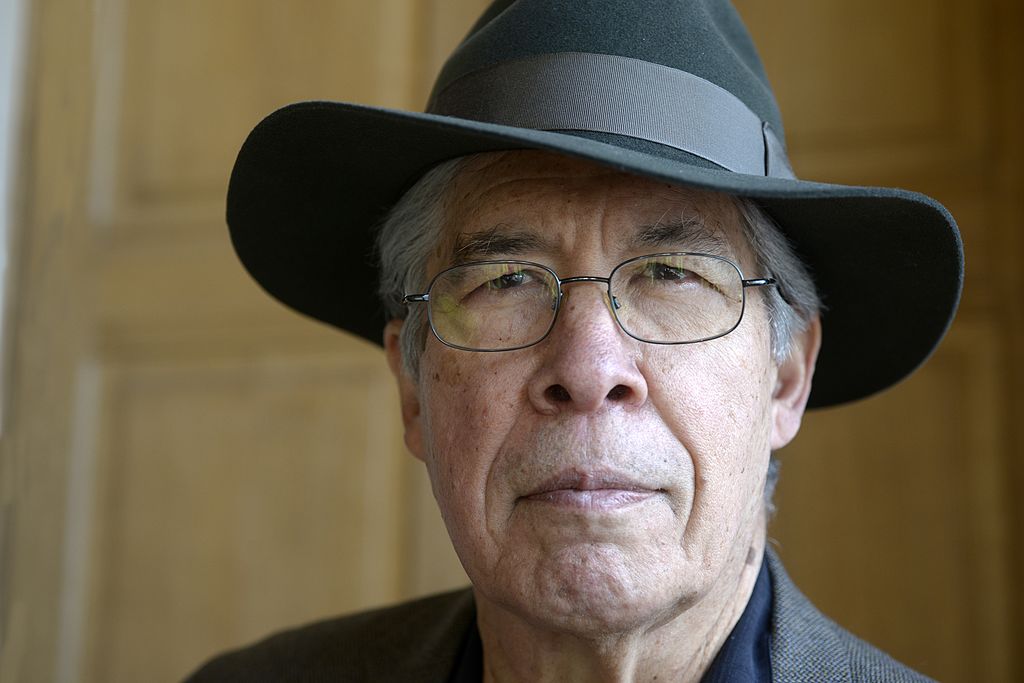I originally intended to observe that American universities’ anti-Israel protesters and Hamas terrorists deserve each other, because they’ve so much in common. They’re both vicious, authoritarian, fanatical, powered by antipathy and focused on either unachievable or pointless aims (even if Columbia did divest from Israel, the pittance withdrawn would have no effect on financial markets, much less on Gaza). But many commentators have decried the protesters chanting “From the Mississippi to the Pacific!” as poorly informed, faddish, spoilt, pathetic and antisemitic. So rather than assess the logic of what I’d have called “woke-lam,” we’ll pivot elsewhere.
On May 1, the House of Representatives passed the Antisemitism Awareness Bill by 320 to ninety-one. After the chorus of ignorant, mindless and overtly anti-Judaic vituperation on American campuses, isn’t this bipartisan gesture of opposition to antisemitism refreshing? Well… no.
The bill’s new definition of antisemitic speech is disturbingly broad. It includes: “targeting of the state of Israel”; “accusing Jewish citizens of being more loyal to Israel, or to the alleged priorities of Jews worldwide, than to the interests of their own nations”; “denying the Jewish people their right to self-determination, e.g., by claiming that the existence of a state of Israel is a racist endeavor”; “applying double standards by requiring of [Israel] a behavior not expected or demanded of any other democratic nation”; and “drawing comparisons of contemporary Israeli policy to that of the Nazis.”
The most horrible places to live are those where you live in terror of letting slip some stray remark
To clarify: the US does not, and constitutionally cannot, permit laws against “hate speech,” which would violate the right to freedom of speech in the First Amendment. Should the bill pass in the Senate, the above definition, which arguably extends to legitimate criticisms of the Israeli government, would be installed in the 1964 Civil Rights Act and the Department of Education. It wouldn’t criminalize voicing antisemitic sentiments per se. Yet in a rare instance of the otherwise irretrievably perverted nonprofit doing its job, the American Civil Liberties Union has expressed concern that the bill might pressure universities to restrict speech about Israel “out of fear of the college losing federal funding.” That’s not a negligible fear.
Indirect hate speech laws beat the direct kind. But across the West, the US is increasingly an outlier in its allowance of speech perceived to be unpleasant, and I’d like America to hold the line. For far more than any race, ethnicity, religion, sexual preference or nationality against which I might harbor some irrational prejudice, what I hate is hate speech laws.
Hatred is an emotion. It is not the business of the state to legislate how we feel or to make us into nice people by fiat. True freedom of expression entails the right to say things that others find disagreeable. I may believe fervently in the existence of Israel, but I believe just as fervently in the right of anyone else to say that they don’t believe in it or even that the country is racist. Comparisons between Israel and Nazi Germany are preposterous — hyperbolic, rhetorically impoverished and historically illiterate. But we should never stop the trite, the poorly educated and the feeble-minded from embarrassing themselves. By advertising their deficiencies, they do the rest of us a service.
Deeming a statement hateful is a supremely subjective exercise. Britain characterises as a hate crime anything the ostensible victim claims is a hate crime, which is legally absurd, relying as it does on no objective, statutorily specific standard. This eye-of-the-beholder definition is a formula for the pursuit of frivolous litigation and petty personal vendetta.
Hate speech laws are naturally expansive and grow only more prohibitive. Scotland has criminalized speech in your own home. Pending legislation in Canada would criminalize what you might say. In flagrant defiance of the bedrock democratic principle of equality under the law, the UK’s list of “protected characteristics” grows ever longer. The population sheltered under the Equality Act’s clumsy umbrella could soon extend to all Britons who aren’t straight white men. Even the holding of certain opinions, such as belief in the reality of biological sex, is now “protected.” The answer isn’t to protect still more opinions, but to protect all opinions, including nasty or wrongheaded ones, and scrap the act.
These laws easily slippery-slope to criminalizing ideas. If you criticize the Islamic faith as predatory and intolerant, isn’t that anti-Muslim? It’s a commonplace for the media to conflate being anti-immigration with being anti-immigrant. By now, we’re all exhausted by the never-ending debate over whether being anti-Zionism or anti-Israel is unavoidably antisemitic. We can keep arguing, but it shouldn’t be up to the state to settle that dispute.
In outlawing crude statements of bigotry such as “I hate black people” (curiously, you might get away with “I hate white people”), hate speech laws also imperil assertions with more nuance. How about, “The animosity and hypersensitivity of the BLM era has made me racist” — which I’ve heard from more than one party. Should saying that be illegal?
In Britain, the prosecution of utterances, posters and tweets has distracted the police from pursuing actual criminals. But the blank page is the ultimate safe space. Words aren’t violence, any more than silence is. The US does sensibly disallow incitement to violence, which would apply to multiple anti-Israel protesters who’ve called for killing Jews. Short of that, expressions of bilious or vitriolic ideas can act as a safety valve. Better ugly speech than ugly acts.
I can’t think of a country that’s ever plunged into tyranny because it gave its citizens excessive latitude to say what they think, including the right to say mean things. Demagoguery and totalitarianism thrive on restriction and suppression of dissent. The most horrible places to live are those where you keep your mouth shut, you watch your back even in private and you live in terror of letting slip some stray remark that will destroy your livelihood and your reputation, perhaps even landing you in jail. Which sounds like just the sort of place that pending legislation in Ireland and Canada aims to manifest. It sounds like Scotland right now.
This article was originally published in The Spectator’s UK magazine. Subscribe to the World edition here.


























Leave a Reply